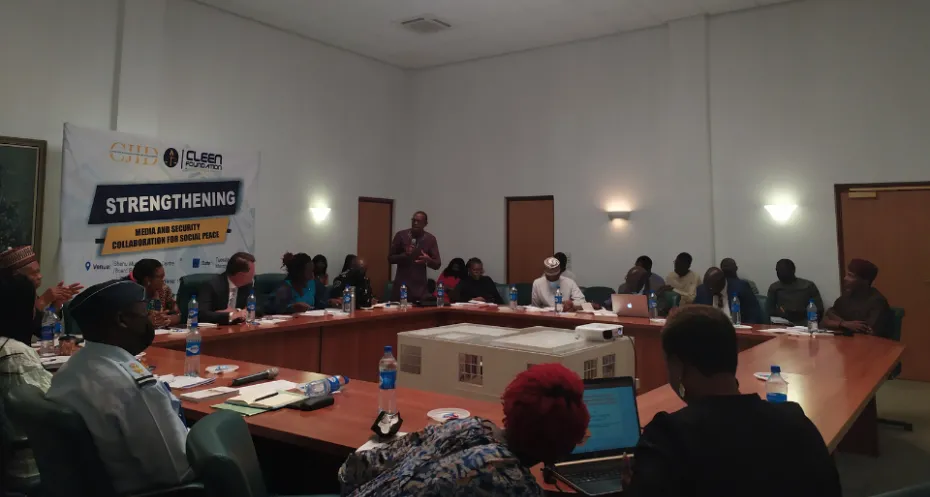Reporting on conflict and humanitarian issues in Nigeria

While the world’s attention is mostly focused on the war in Ukraine, there are conflicts in different parts of the world that need good reporting. Like in Nigeria, that is experiencing widespread violence concentrated in the North East of the country. Many women, children and families have been displaced and a severe humanitarian crisis has plagued the country for several years. The stories of those affected by the conflict must not remain untold.
However, covering conflict in Nigeria is difficult. Journalists are faced with intimidation, threats to their physical safety and denial of access to information. Despite the abundance of media outlets, very few produce consistent, professional and ethical content - the foundation of good journalism. In conflict settings this is even more critical as the society is vulnerable and fragile, and citizens are in dire need of information.
Therefore Free Press Unlimited, together with the Centre for Journalistm Innovation and Development (CJID), with the financial support of the Ducth embassy in Nigeria, started the project Media Narratives on Conflict and Humanitarian Crises in Nigeria in 2018, which now, after more than four years, has come to an end.
Conflicts and the role of the media
The Boko Haram insurgency in the North East is the largest humanitarian crisis since the Nigerian civil war. The conflict has left more than 20,000 dead and two-million displaced. According to the BBC, Boko Haram is one of the least understood jihadist groups in the world. Another conflict taking place between herdsmen and farmers is wreaking havoc across the Northern part of the country. The complexity of the conflict has led the media to report inaccurately at times by including ethnicity and religion into the narratives and failing to understand root causes.
A well functioning, professional media can help understand conflicts and inform people on its orginin, but also on safe and unsafe places in the country and the impact of conflict on living conditions.
Training and media monitoring
In this project, the CJID monitored the work of ten Nigerian media houses in regards to conflict reporting. This brought forward that conflict and humanitarian reporting are still not prioritised by the media. It also shows that these reports are consistently gender blind, do not sufficiently reflect the issues beyond two sides, and lack the attempt to explore common grounds. As a result, often times the conflict is shaped by elites and state actors.
Based on this, 16 journalists (12 men and 4 women) from the ten monitored media houses received training on this topic. The focus of the training was conflict reporting with modules on reporting on gender, ethics, international and local laws, treaties, and instruments for contextualising conflict. The same training has been provided to 404 campus journalists (210 women and 194 men) across Nigeria, over the past years.
As an enabling environment for press freedom goes hand in hand with social peace, it can only be articulated successfully when the media and security sector (including police and army forces) can work collaboratively. That intention was infused all along the project which was finalised with a round table bringing together about 25 leaders from Nigerian security and media sectors. It aimed to explore common ground for a collaboration between the two industries, that can improve conflict reporting in the media space.
Some of the valuable elements learned from the project include the need for even more gender awareness in capacity building activities, and the necessity for more attention towards the emotional well being of journalists.
Read the complete media monitoring report from CJID below:
